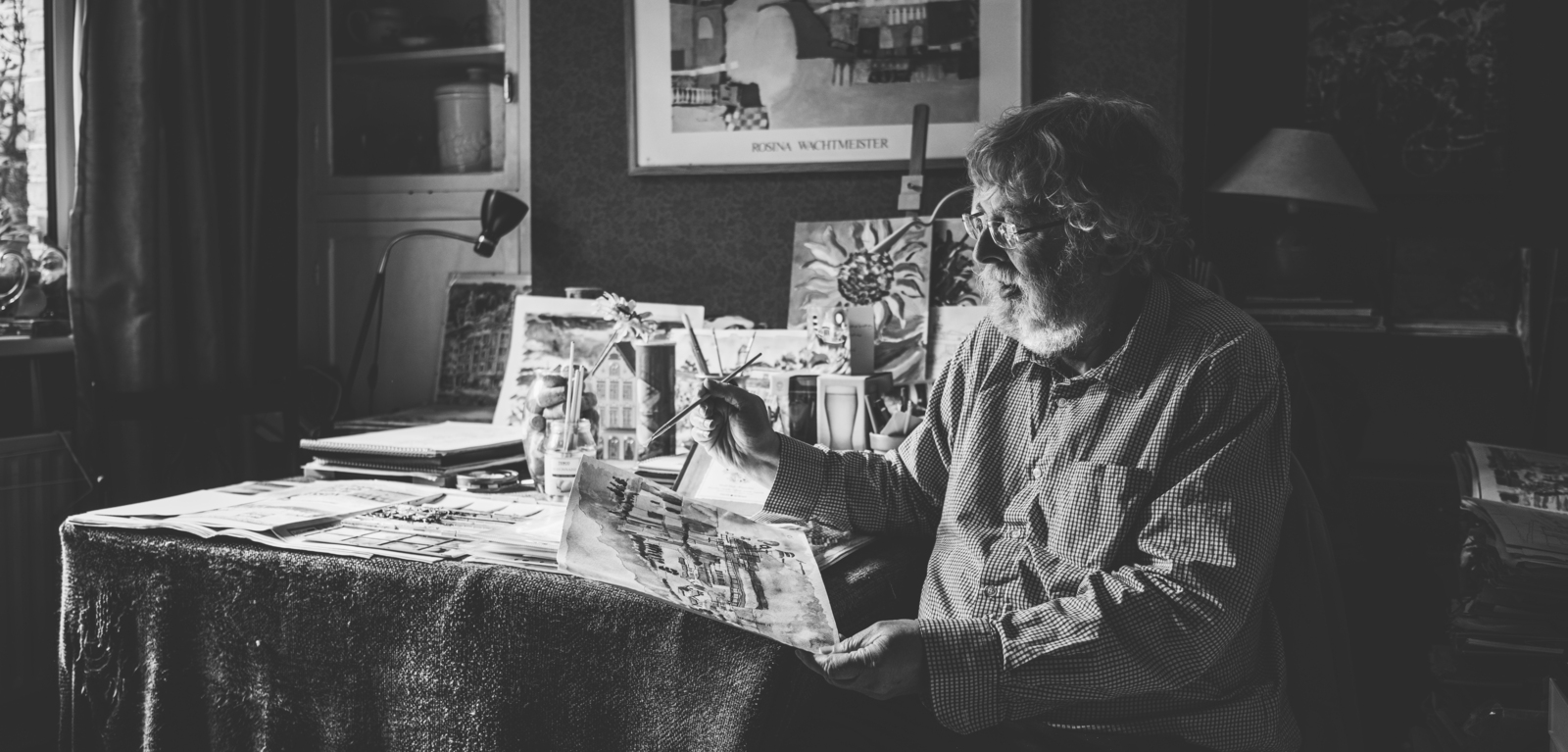Robin’s Story: The Architecture of Better Cancer Care
“I asked for a prostate test, just because of my age. That small act probably saved my life,” says Robin, “It was completely unexpected. I felt fine, had no symptoms, and then suddenly my world changed.”

A shock diagnosis
At 68, Architect Robin Bigger had no reason to think anything was wrong. A routine visit to his GP became life-changing when, on a whim, he asked the nurse to include a PSA test with his bloods. She agreed and the results revealed prostate cancer at an early stage.
“The diagnosis was a shock. I had work, commitments, and my partner Cathy, who has been living in full-time care since a serious accident four years ago. The idea of weeks of hospital visits felt overwhelming,” Robin recalls. When his consultant explained the treatment options including surgery, standard radiotherapy, or joining a clinical trial run by Queen’s University Belfast, Robin felt the trial offered the right balance. “I wanted something that would let me continue my life while giving me the best possible care.”
Queen's pioneering approach
The trial was testing a pioneering approach to prostate cancer treatment. Instead of the usual twenty radiotherapy sessions over several months, men received five high-dose sessions in just two weeks. For Robin, it meant less disruption, less time away from work and Cathy, and access to cutting-edge care close to home.
“It was intense, but knowing the team had everything mapped out made it manageable. They supported me every step of the way.”
Throughout the treatment, the Johnston Cancer Research Centre team guided Robin through scans, preparatory treatments, and the new radiotherapy schedule. He was monitored closely with regular blood tests and questionnaires to track side effects. Three years on, his PSA levels remain minimal. “It worked. I feel fortunate and grateful every day,” he says.
Transformative care
Robin was one of around fifty men in Northern Ireland to take part in the trial. The research has since expanded to over a thousand men across several countries. If findings continue to be positive, this five-dose treatment could become the new standard, transforming care for thousands of men by reducing hospital visits, saving time and resources, and delivering excellent outcomes.
“It’s exciting to think that what I experienced could help so many others,” Robin reflects.
For Robin, the impact of Queen’s research goes far beyond statistics. During the pandemic, he discovered watercolour painting through online classes. Since completing his treatment, he has joined art holidays in Croatia, Venice, Portugal, and Slovenia. “Painting has brought colour and joy back into my life. It’s given me energy, creativity, and a sense of freedom again,” he says.
Looking back, Robin sees a story of chance and choice. “It was one extra test, one decision to take part in a clinical trial, and the dedication of the researchers and clinicians who wanted to find a better way. Research isn’t just about survival. It’s about living fully, with hope and dignity.”
FIND OUT MORE
The Johnston Cancer Research Centre
Help support Queen's University's initiatives